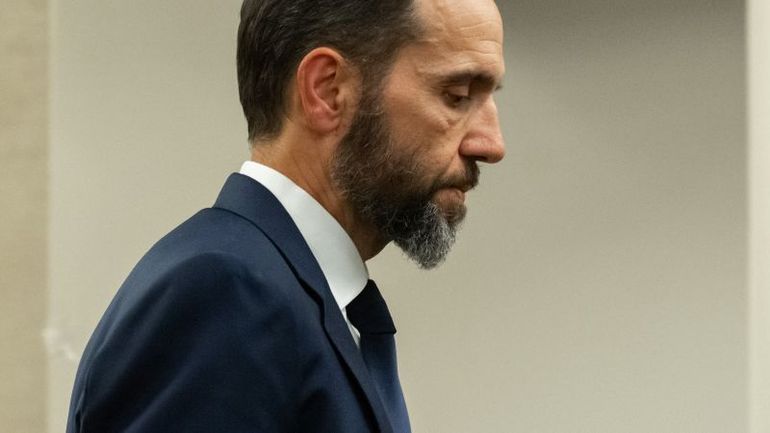
Probe into Potential Jurors' Beliefs on 2020 Election in Classified Documents Case

In the Mar-a-Lago classified documents case involving former President Donald Trump, prosecutors are seeking to gauge potential jurors' views on the 2020 election being stolen. Differing opinions between prosecutors and defendants on this key question have emerged in the latest court filing, adding complexity to the jury selection process.
Prosecutors are looking to question potential jurors in the Mar-a-Lago classified documents case involving former President Donald Trump about their beliefs on whether the 2020 election was stolen. This is one of the questions that prosecutors and the defendants are currently in disagreement over, as stated in a recent court filing.
Both prosecutors and defense attorneys have submitted a list of questions for potential jurors to the judge overseeing the case. The filing highlights the questions that both parties agree are essential to ask individuals called for jury duty when the trial begins, as well as the questions that they have conflicting views on asking.
The proposed jury questionnaire form provides insight into how each side is approaching the process of questioning potential jurors, known as voir dire, for the historic trial. It also sheds light on the unique challenges of selecting a jury for this unprecedented, high-profile case.
In the new jury questionnaire filing, defense attorneys are against asking questions about potential jurors' views on the Justice Department and FBI, as well as their opinions and news consumption related to the FBI's 2022 search of Mar-a-Lago. They also object to specific mentions of Trump's properties, such as the Mar-a-Lago estate, in some of the questions.
The defendants are suggesting that jurors be asked if they are registered to vote, if they voted in 2020, and their registered party affiliation. Special counsel Jack Smith's office is against these questions. The defense also wants to ask potential jurors about their negative views on politicians.
Former President Trump is facing charges of unlawful retention of national defense information and obstruction. The case was initiated against him last summer. He is accused of mishandling sensitive government documents by taking them from the White House to Mar-a-Lago after his presidential term ended. Trump's co-defendants in the case are his bodyman Walt Nauta and Mar-a-Lago employee Carlos De Oliveira, who are both charged with obstruction-related crimes.
The three defendants have all entered pleas of not guilty. Smith's team and the defense attorneys do find common ground on certain issues. This includes determining if potential jurors have made donations to political campaigns, attended rallies in support of a candidate, or displayed political bumper stickers or magnets on their cars.
Prosecutors and the defense are in stark disagreement over the trial's duration. Prosecutors estimate it will last four to six weeks, while the defense believes it could extend to eight to 10 weeks.
The trial is set to begin in May, but a hearing is scheduled for Friday where the judge will address scheduling and other matters.
The former president and 2024 GOP frontrunner is facing four criminal prosecutions, including the documents case. In Washington, DC, Smith has brought a separate case that is currently on hold while the Supreme Court reviews Trump's claims of presidential immunity related to his attempts to overturn the 2020 election. Another prosecution by the Manhattan District Attorney, focusing on a hush money scheme during Trump's 2016 campaign, is set to go to trial next month. Additionally, the Georgia election interference case against Trump and other defendants has been delayed due to ethics allegations against District Attorney Fani Willis.
Editor's P/S:
The ongoing Mar-a-Lago classified documents case presents a unique and complex challenge in jury selection. The proposed jury questionnaire reveals the contrasting perspectives of prosecutors and defense attorneys. While some questions aim to gauge potential jurors' biases and political affiliations, others delve into their views on specific entities and events, such as the Justice Department and the FBI's Mar-a-Lago search. The disagreements highlight the sensitivity of the case and the potential for bias among jurors.
The disparity in the estimated trial duration further underscores the complexities involved. Prosecutors' estimate of four to six weeks contrasts with the defense's belief that it could extend to eight to 10 weeks. This divergence may stem from varying assessments of the evidence and potential witness testimony. The upcoming hearing on scheduling and other matters will shed light on the court's approach to managing the trial. The outcome of the jury selection process and the trial's duration will significantly impact the proceedings and the ultimate verdict in this high-profile case.













